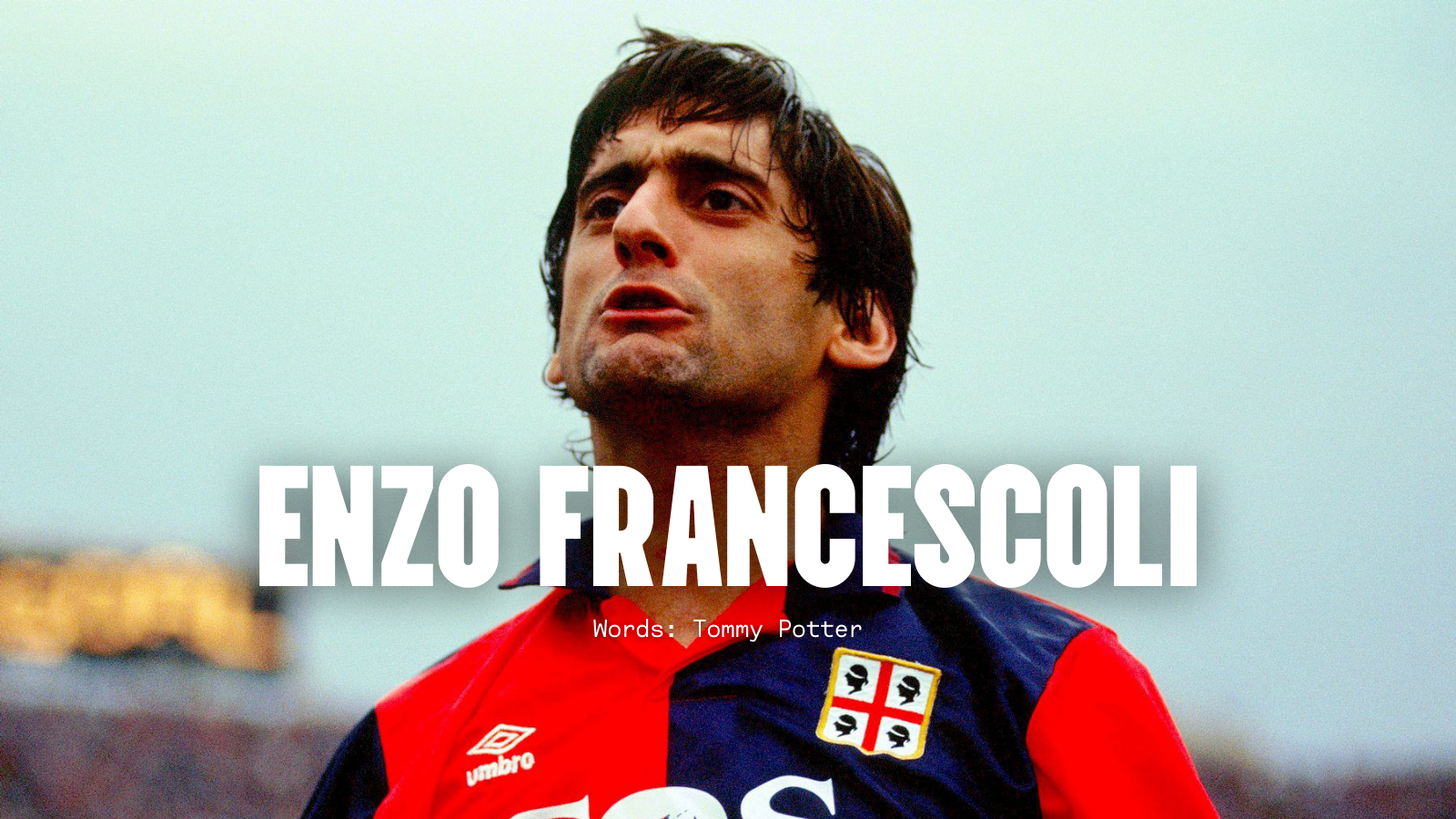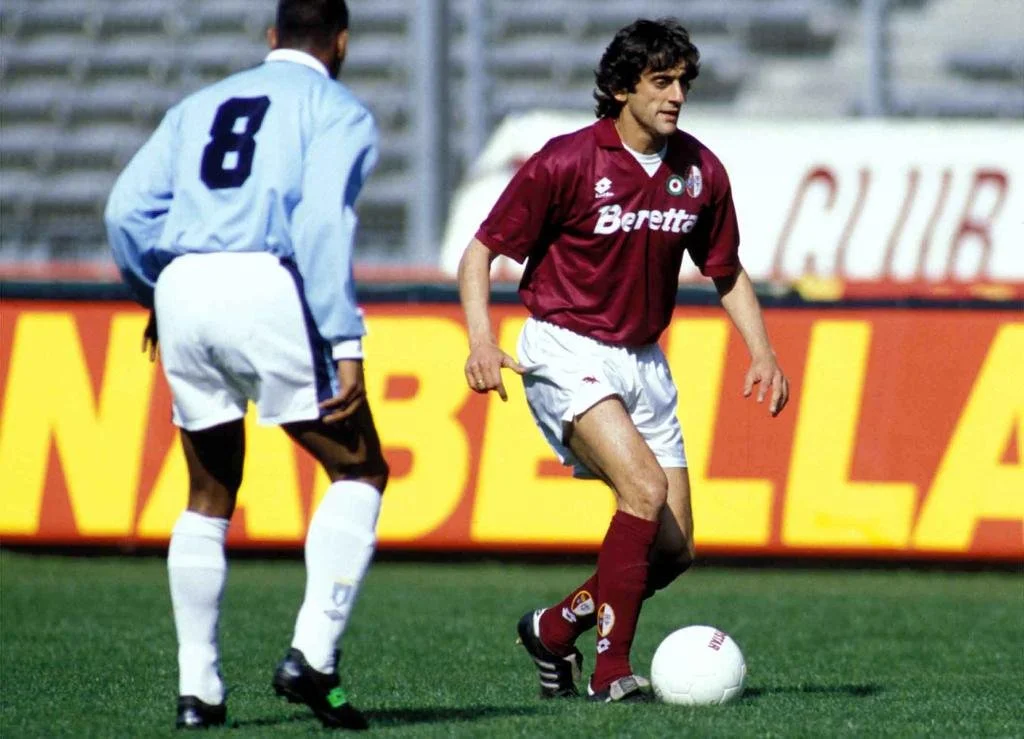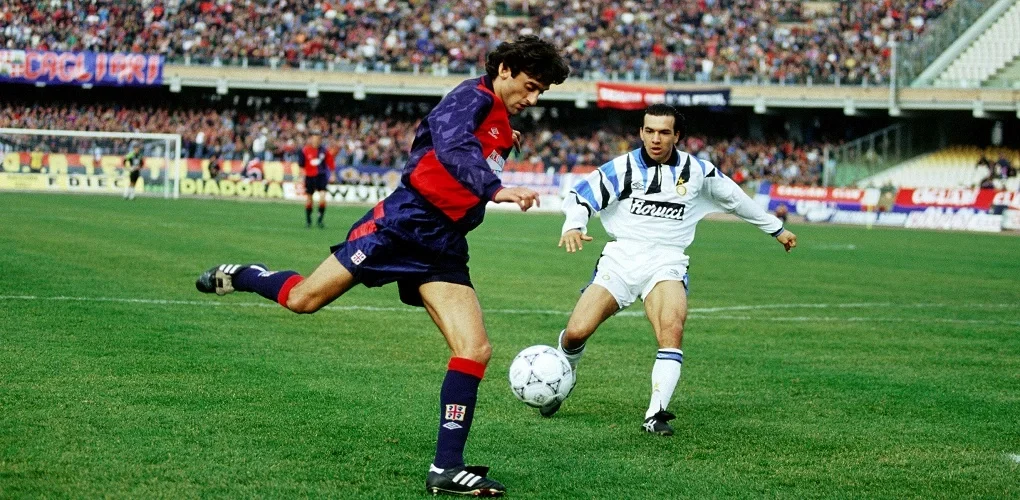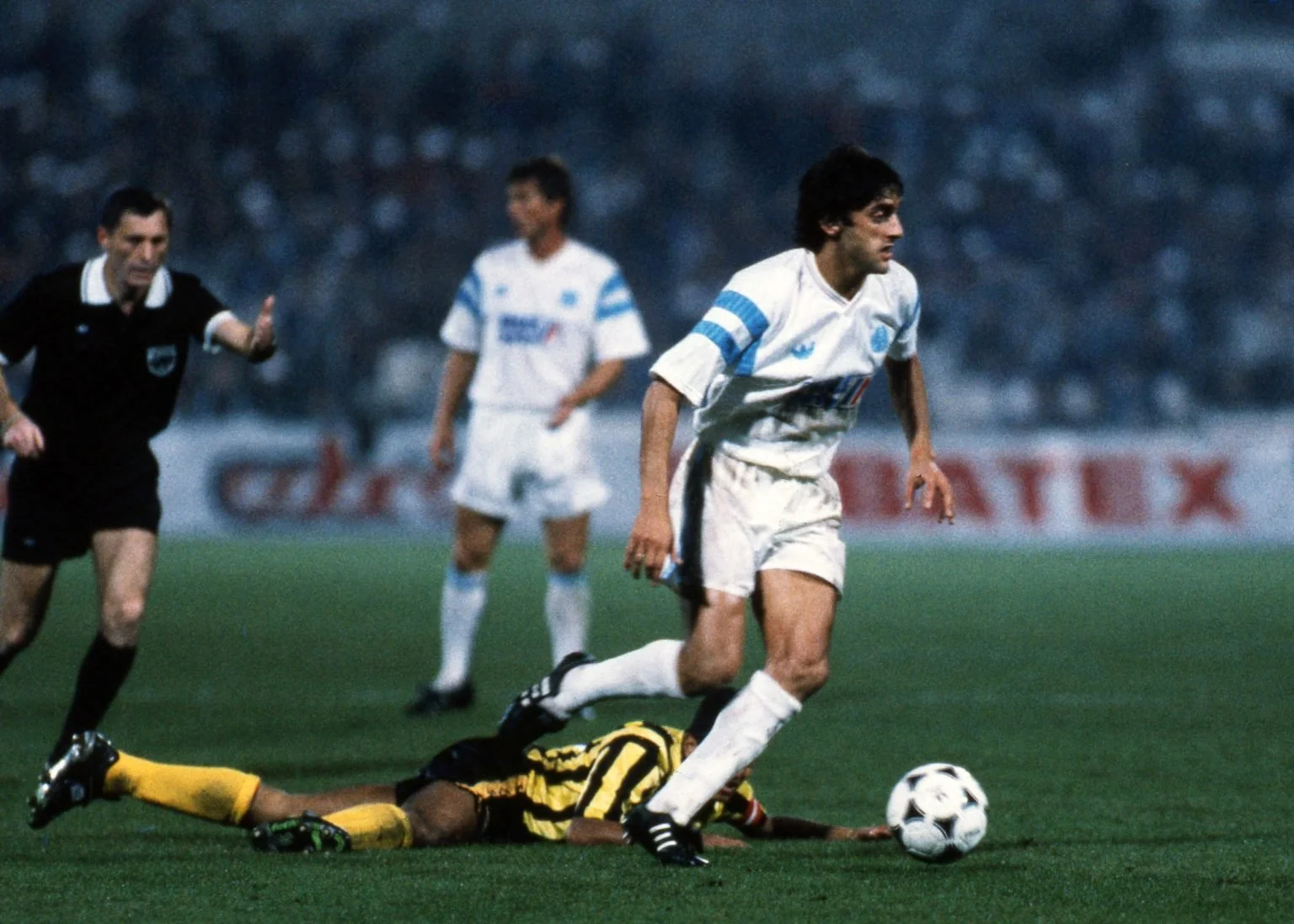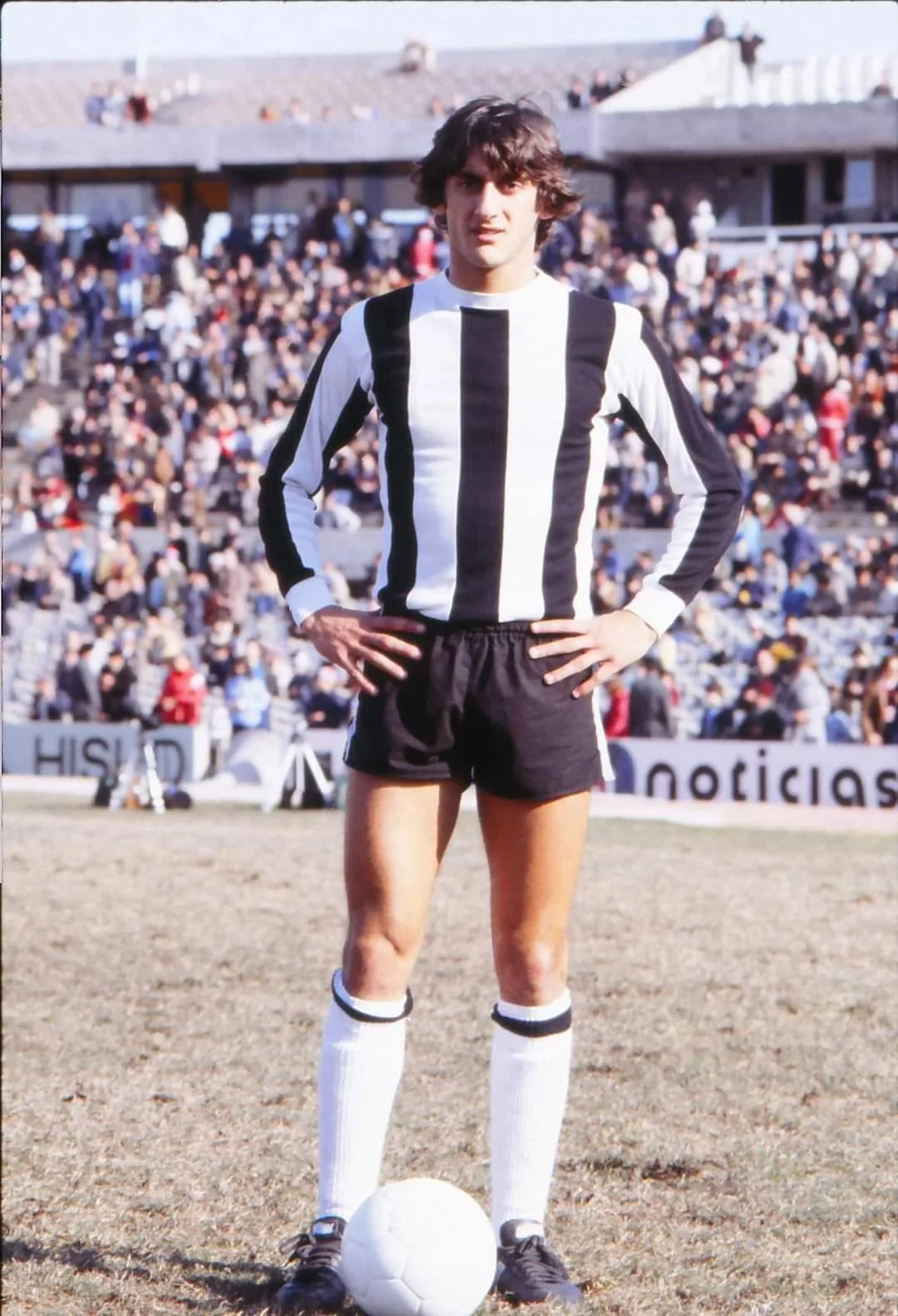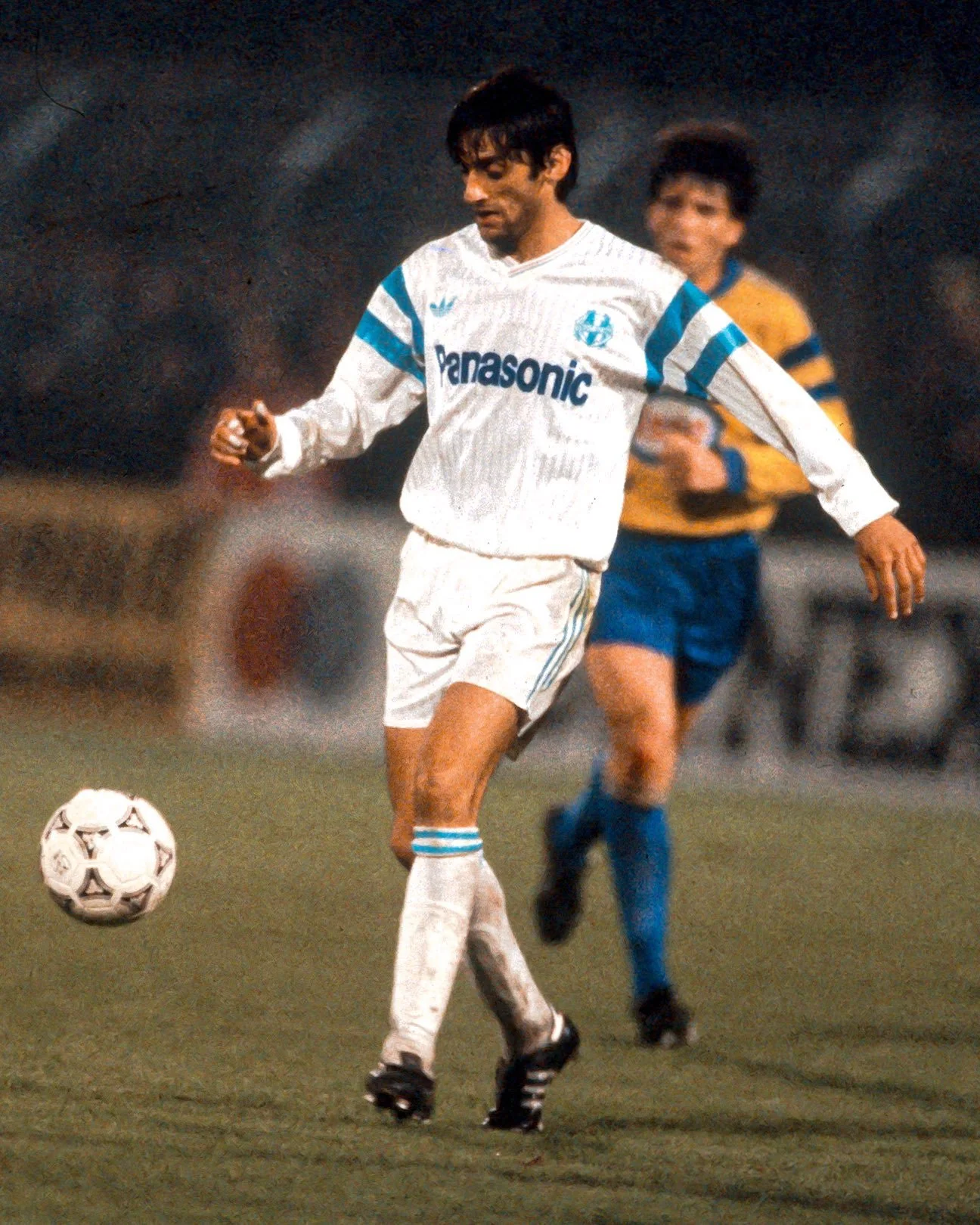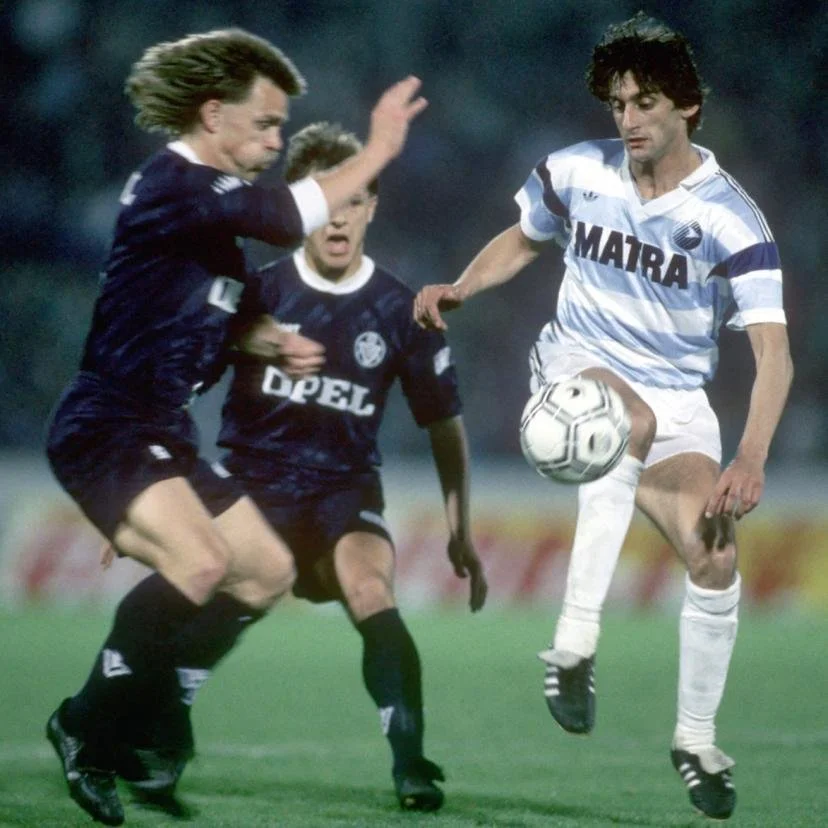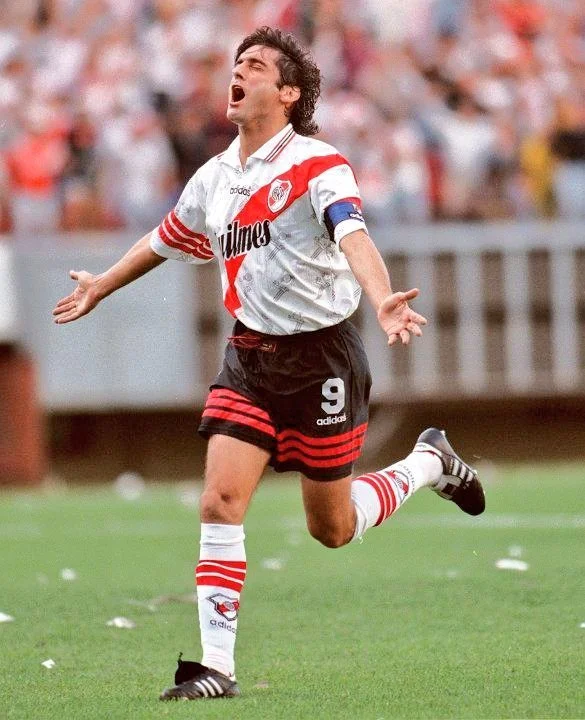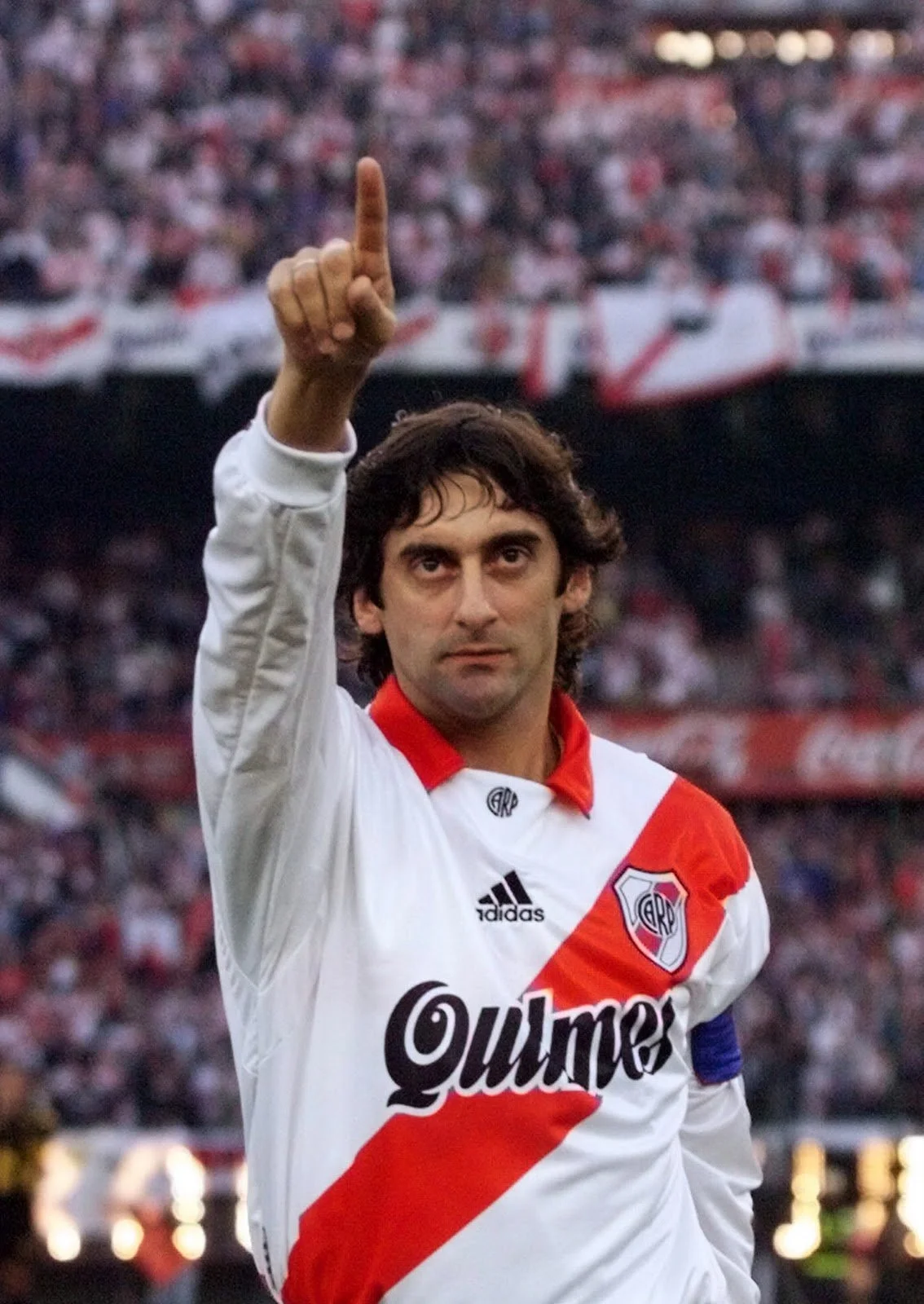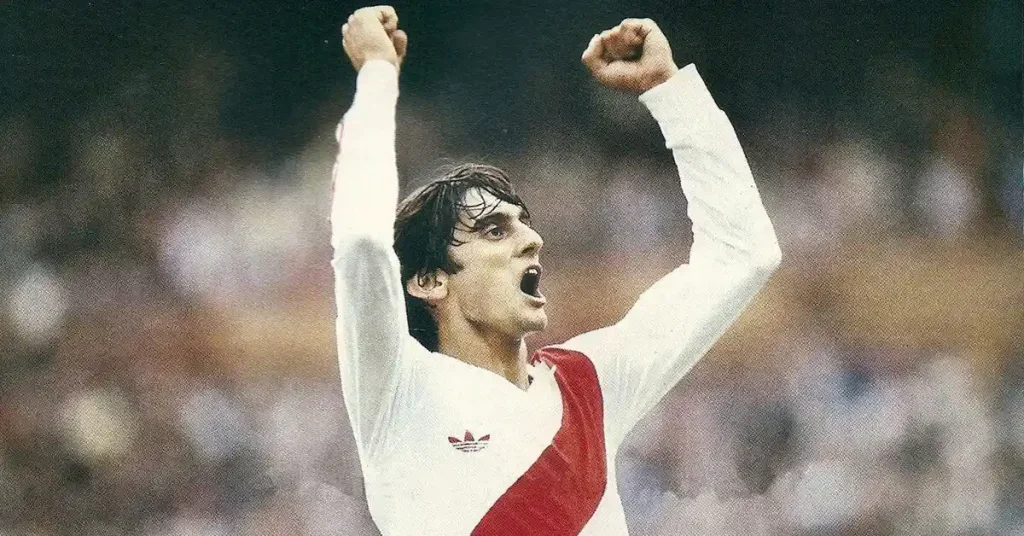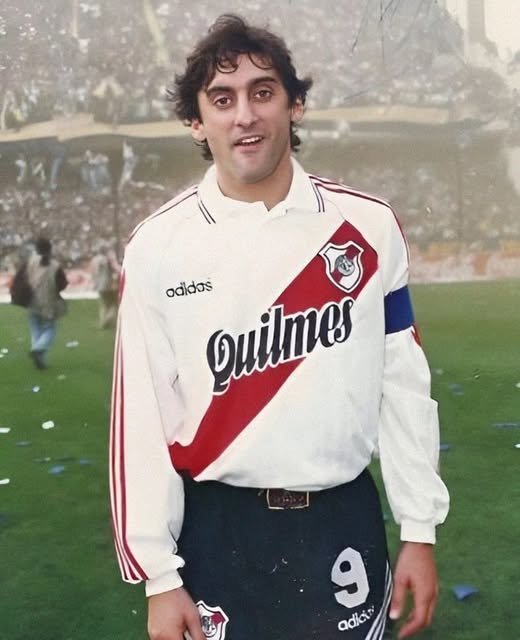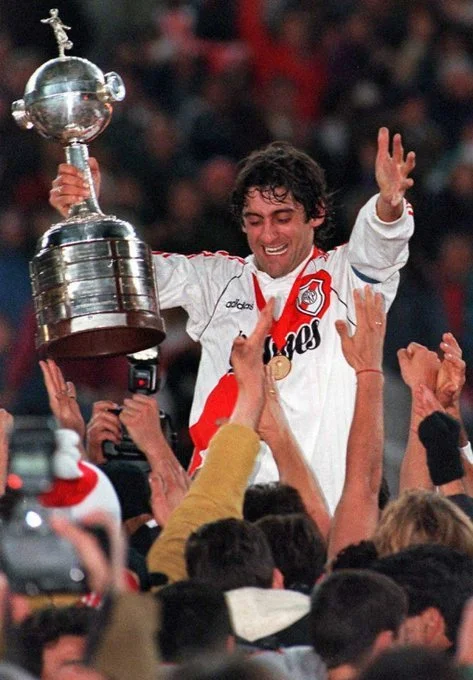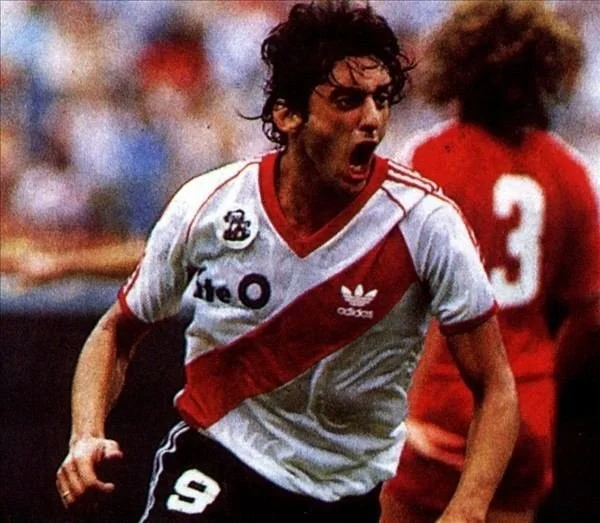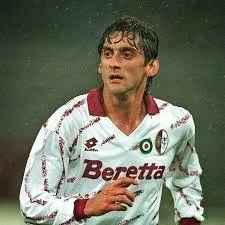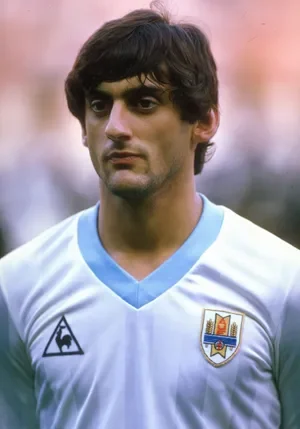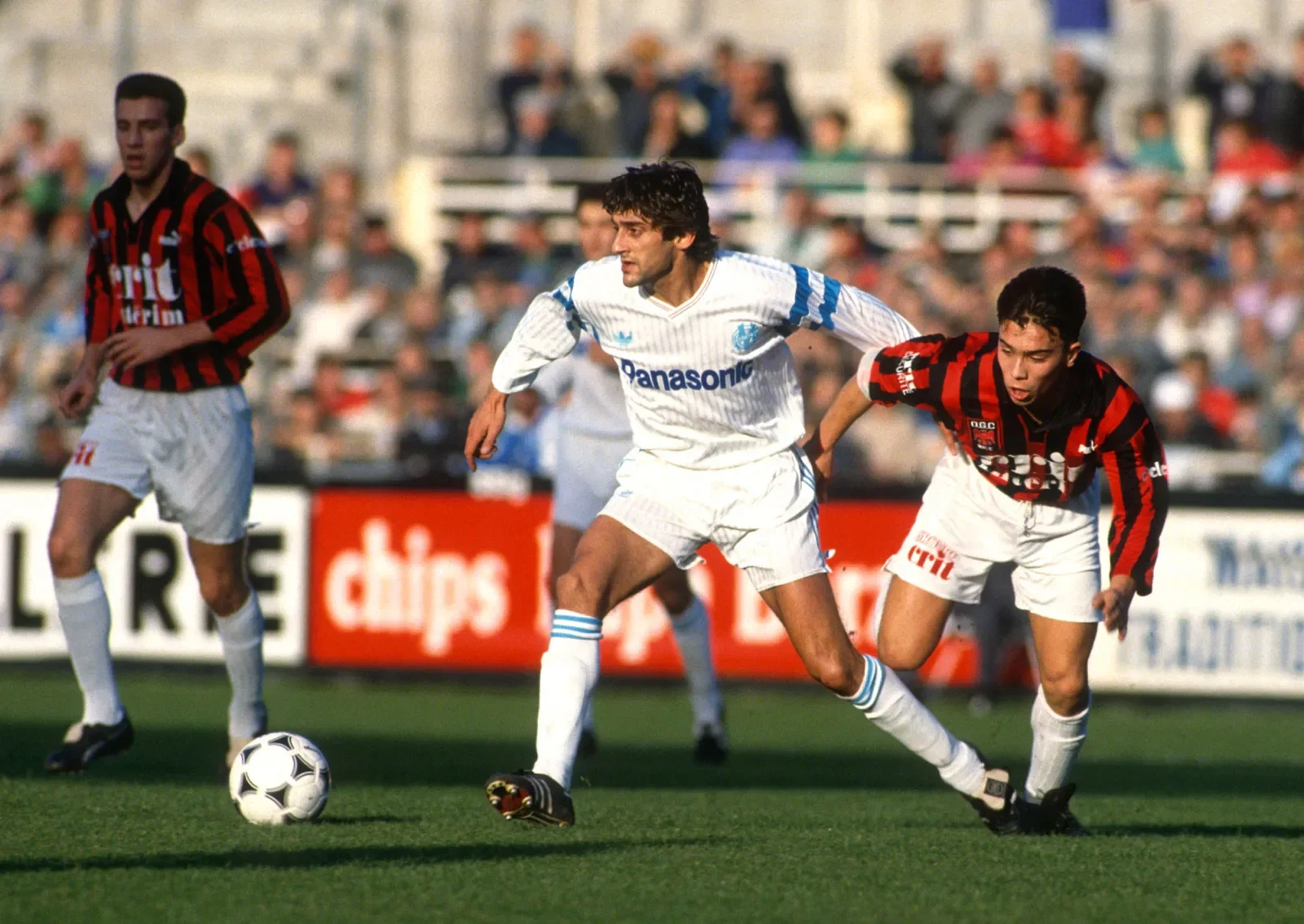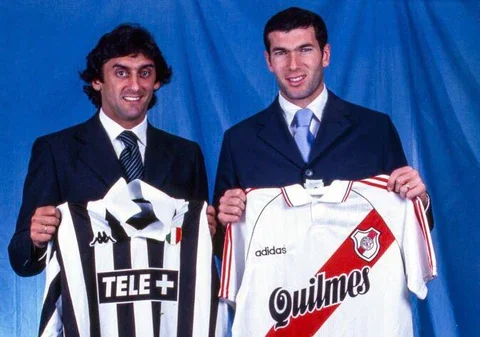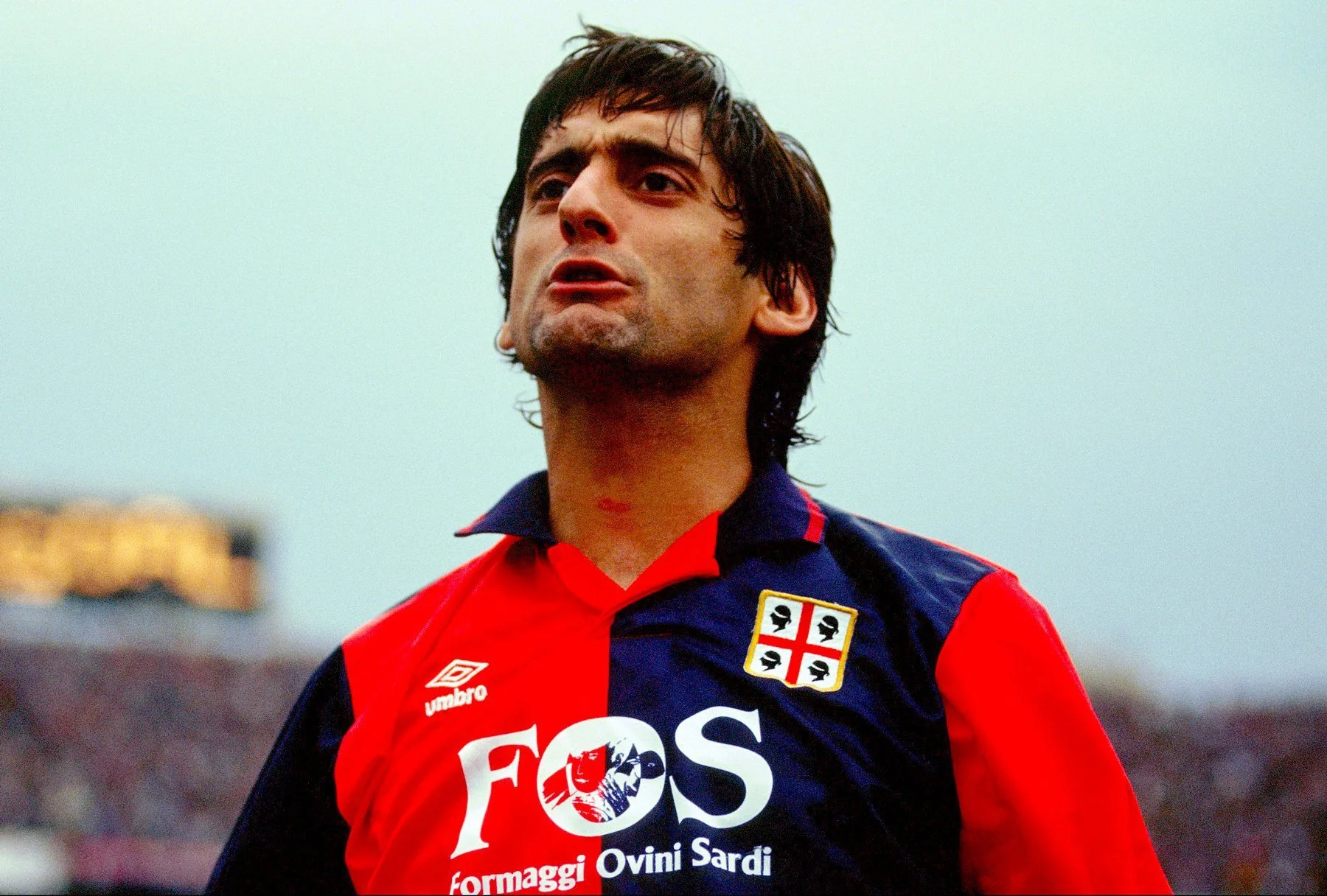
Words by Tommy Potter | Published 24.09.2025The 1980’s was a sublime era for number 10’s. Brazil had Zico, Argentina had Maradona, and Uruguay? They had Enzo Francescoli. He may not have the same profile as the aforementioned pair, but this shouldn’t allow his talent to be underestimated. A slight player who loved to smoke, Francescoli was fast in the feet with an even faster brain. He had incredible vision, with a beautiful way of making the ball move. A quick YouTube search will help you find compilations of Francescoli effortlessly clipping free kicks into various parts of the opposition goal. An absolute joy to watch. He is possibly the purest example of a maestro.
The player known as ‘The Prince’ had less glamorous beginnings than the name might suggest. This was by design. When continental heavyweights Peñarol and River Plate came calling, young Enzo opted to stay with his successful school team, before eventually signing for relative minnows Montevideo Wanderers. After impressing with his debut club and winning the 1983 Copa America with Uruguay, River Plate came calling again. This time though, Francescoli accepted. A $310,000 fee was agreed and Francescoli was off to Buenos Aires.
After a relatively inauspicious start, Francescoli really started to flourish at the El Monumental. Scoring and creating goals for fun, he helped lead River to the 1985 league title. However, by 1986 it was time to take the next step in his career. The bright lights of Europe were calling and Francescoli was off to Paris, signing for the newly-rich Racing Paris.
Despite splashing the cash, Racing Paris struggled for consistency. Francescoli, on the other hand, held up his end of the bargain. He finished as the club's top goalscorer in 3 consecutive seasons, and was even elected the best foreign player in France in 1987. The money wouldn’t last at Racing Paris and in 1989, with the club struggling financially, he was sold to Marseille.
Marseille. Glamorous. Iconic. Massive. Enzo Francescoli had arrived at a club that could match his talent and ambition. A place where he could lay down a legacy. And that's exactly what he did, in more ways than one. Francescoli only stayed at Marseille for one season, but what a successful season it was – he scored 11 times in 28 games, and left with a Ligue 1 winners medal. His impact didn't end here, though. It was also the future generations of French football where Francescoli’s influence could be felt.
Enter Zinedine Zidane.
Growing up in Marseille’s tough northern suburbs, a young Zidane was enthralled by Francescoli’s majestic talent. He idolised the Uruguayan, taking influence from the way Francescoli played and applying it to his own game. Talent inspires talent. Years later, when Zidane’s first son was born, he named him Enzo, in honour of his childhood hero.
Despite an exceptional season at Marseille, after 1 year Francescoli was on the move again. This time he would land in Serie A with Cagliari, and then Torino. Serie A in the 80’s and 90’s was the place to be for elite footballers. The league was awash with money and stars. No offence to Cagliari, Torino, or any other club of a similar stature, but, you might be wondering why a player of Enzo Francescol’s profile and talent didn’t join a traditional power-house of Italian football? Well, this wasn’t unusual for the Italian game at the time. The reputation of the league was such that even so-called smaller clubs could attract top players. Zico rocked up at Udinese. Socrates at Fiorentina. Napoli were not the club they are today when Diego Maradona arrived. These were the footsteps Francescoli was following when he joined Cagliari.
If you look at Francescoli’s goalscoring record whilst in Italy, it’s not the sort of goal return you’d expect from a player with such attacking prowess. There are two explanations: Firstly, Francescoli was deployed further back, where he was asked to orchestrate from deep. Secondly, Italian football was notoriously difficult both tactically and defensively. Goals were not given away easily. If you look at the league's top scorers during this era, it's nothing compared to the numbers put up by modern players. Defending was truly an art in those days.
The year was 1994. Francescoli, now 33, decided the time had come to head back to South America, and back to the club where he first came to the world's attention, River Plate. With fire in his belly and a desire to show he can still compete with the best, Francescoli embarked on the most trophy-laden stint of his career. Captaining the club, leading teams of exceptionally talented players, Francescoli won 4 league titles, a Supercopa Sudamericana, and multiple individual awards. However, his crowning glory was winning the 1996 Copa Libertadores. Anyone who follows South American football will understand the esteem in which the competition is held. For Francescoli, it was no different. Captaining a young River side which included Hernan Crespo, Marcelo Gallardo, and Ariel Ortega, they captured South America’s greatest prize. In early 1998, he retired, a legend of the game who left his mark on both sides of the Atlantic.
Players of Francescoli’s ilk are a dying breed in the modern game. Footballers are no longer expected just to be technically gifted; they are also expected to be elite athletes. With football's shift to athleticism, where speed, strength and high-intensity pressing are traits desired as much as skill, vision and creativity, it's hard to see where more cerebral players, who struggle to adapt their physicality, fit in. Watching videos of Francescoli, though, I can understand why older generations of fans get misty-eyed and nostalgic about football and footballers from bygone eras of the game.
And who can blame them? They don’t make footballers like Enzo Francescoli anymore.


